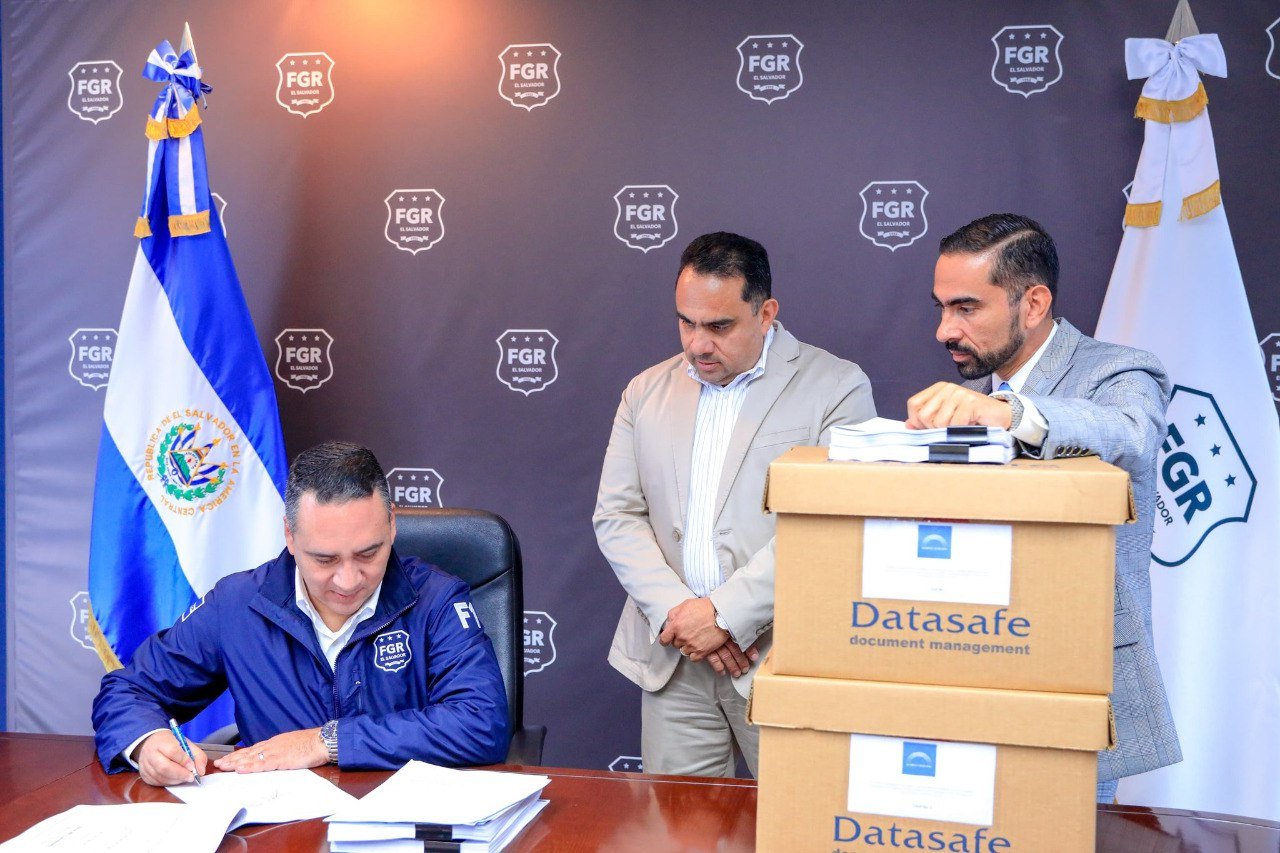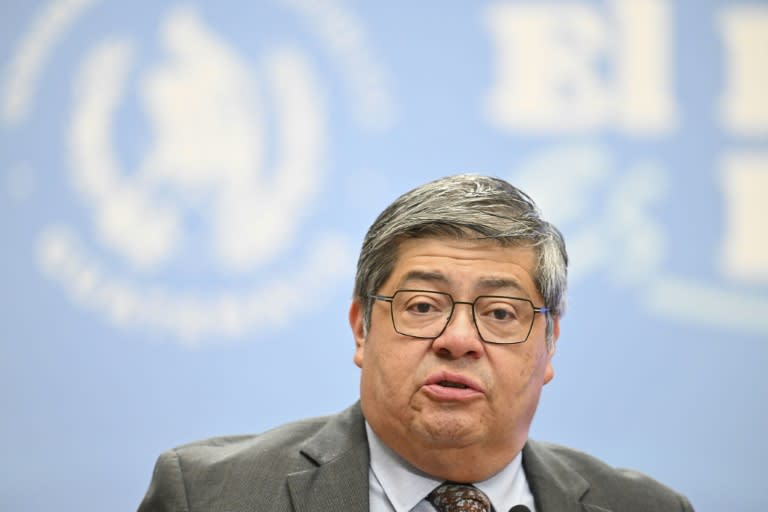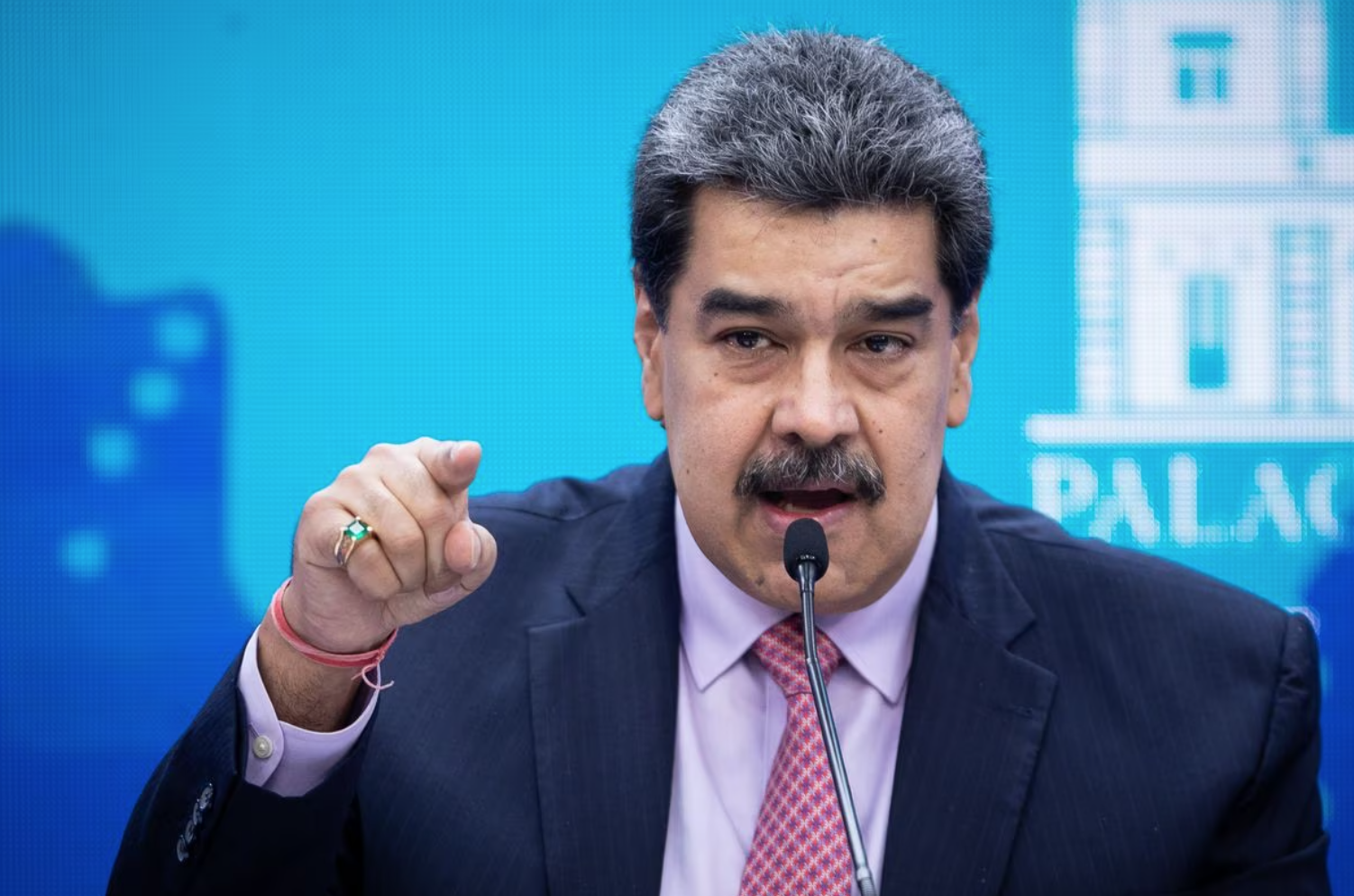Central America
Final report submitted to Public Prosecutor’s Office to investigate former deputies who diverted funds through front NGOs

September 29 |
The Legislative Assembly informed that this Thursday a final report and a complaint was submitted to the Attorney General, Rodolfo Delgado, to investigate former deputies who illegally diverted public funds to non-profit organizations, associations and foundations through front Non-Governmental Organizations.
Said report was submitted by the lawyers of the Special Commission investigating the destination of funds allocated to NGOs.
“The report we are presenting is the accumulation of an investigation process initiated in the Assembly, which has already concluded. In it, indicative elements have been compiled, such as disbursements to NGOs, without any type of requirement”, explained Mario Machado, lawyer who supported the Commission.
Machado added that these NGOs “did not have balance sheets, up to date credentials or project liquidations and yet they received amounts of money. An analysis was made and it was identified that, from 2011 to 2020, $279 million was diverted to them.”
According to the investigation conducted by the commission, the previous legislatures granted $279 million to 20 organizations between 2011 and 2020, and it was found that part of those resources were allocated to entities with partisan ties. Some of these belonged to Congresswomen Lorena Peña and Milena Calderón de Escalón.
“It is important to highlight that, during the study, organizations were found that have carried out relief actions and others that were definitely founded for quasi-criminal purposes”, Machado added.
Central America
Guatemalan police officer killed in mob riots over baby kidnapping

A police officer was killed during riots provoked by an enraged mob in a Guatemalan town following the kidnapping of a baby, the government reported on Wednesday.
The incidents began on Tuesday night and continued into the early hours of Wednesday in the town of San Vicente Pacaya, about 25 km south of the capital, according to Minister of the Interior Francisco Jiménez.
“There was an incident in San Vicente Pacaya where, unfortunately, a police officer died after being struck in the head with a stone. He passed away this morning,” Jiménez said in a press conference.
He explained that the unrest erupted following the arrest of two suspects in connection with the kidnapping of “a baby just a few months old,” including a woman with a criminal record.
Sports
Venezuela investigates 18 baseball players seeking asylum in Spain

The Venezuelan government announced on Wednesday that it is investigating the case of 18 baseball players who are “under the supervision of Spanish authorities” after seeking protection.
In a statement, Venezuelan authorities said they are working to determine whether this case involves “a possible human trafficking scheme,” though they have not provided any evidence of such a crime.
The Venezuelan government emphasized its commitment to protecting the country’s athletes while also denouncing the use of international legal frameworks by certain governments allegedly seeking to discredit the administration.
CNN reached out to Spain’s National Police for a response to Venezuela’s claims. According to Spanish authorities, the 18 young athletes—including two minors—arrived in Spain to participate in a series of matches but had already planned to apply for asylum. Authorities confirmed on Tuesday that they had begun interviewing the players to process their international protection requests.
The team’s coach addressed the situation in a TikTok video, refuting local media reports that he had abandoned the athletes. He asserted that the players chose to remain in Barcelona to secure the necessary permits to sign with other teams and that their decision was unrelated to any political motivations.
Sports
Filipe Luis debuts as coach in Copa Libertadores with Flamengo

A two-time Copa Libertadores champion with Flamengo during his playing days, Filipe Luis will make his managerial debut in the tournament this Thursday when the popular Rio de Janeiro club faces Venezuela’s Deportivo Táchira.
Placed in Group C alongside Táchira, Liga de Quito, and Argentina’s Central Córdoba, Flamengo starts as one of the favorites—a major challenge for the 39-year-old former player.
His early coaching career has been off to a strong start.
After retiring in 2023, Filipe Luis took over as Flamengo’s head coach on September 30. Just 41 days later, he won his first title, the Copa do Brasil. The year 2025 has already brought two more trophies: the Supercopa do Brasil, where Flamengo defeated Botafogo—current Libertadores and Brasileirão champions—3-1, and the Campeonato Carioca.
At 8:30 PM local time (00:30 GMT Friday), Flamengo under Filipe Luis will make its international debut at Estadio Pueblo Nuevo in San Cristóbal. Although Gerson, Uruguayan Giorgian de Arrascaeta, and Ecuadorian Gonzalo Plata are unavailable, the squad still boasts attacking firepower with Bruno Henrique and Everton.
-

 International5 days ago
International5 days agoSon of journalist José Rubén Zamora condemns father’s return to prison as “illegal”
-

 Central America2 days ago
Central America2 days agoU.S. Homeland Security Secretary urges Mexico to strengthen Guatemala border
-

 International5 days ago
International5 days agoMiyazaki’s style goes viral with AI but at what cost?
-

 Central America4 days ago
Central America4 days agoPanama police clarifies that Interpol alert for Martinelli is still pending
-

 International2 days ago
International2 days agoTrump urges Putin to reach peace deal
-

 Central America2 days ago
Central America2 days agoPanama grants Martinelli 72-hour extension to travel to Nicaragua
-

 International21 hours ago
International21 hours agoParaguay summons Brazilian ambassador over Itaipú espionage scandal
-

 International4 days ago
International4 days agoDeportation flight lands in Venezuela; government denies criminal gang links
-

 Central America18 hours ago
Central America18 hours agoGuatemalan police officer killed in mob riots over baby kidnapping
-

 Sports21 hours ago
Sports21 hours agoFilipe Luis debuts as coach in Copa Libertadores with Flamengo
-

 International21 hours ago
International21 hours agoICE agent’s arrest of suspect sparks controversy in Boston
-

 International21 hours ago
International21 hours agoMilei vows to make Argentina so strong that Falkland Islanders “choose” to join
-

 International21 hours ago
International21 hours agoElon Musk to step down as government advisor, per Trump insiders
-

 Sports21 hours ago
Sports21 hours agoVenezuela investigates 18 baseball players seeking asylum in Spain
-

 International21 hours ago
International21 hours agoÓscar Arias: Trump’s trade policies are a step backward































































































